The democratic systems in most African countries have been shaped by a series of twists, turns and all kinds of political upheavals in the past 50 years. In a few nation states where civilian rule was abruptly cut short by military dictatorship, the process of transitioning back to civilian democracy was oftentimes met with much drama, intrigue and tension peculiar to such a nation's political terrain.
While most parts of Africa continue to be rife with the crisis of political instability owing largely to the absence of a strong institutional framework for leadership, a few countries have managed to ensure that "power changes hands" from time to time even if it means making it a family affair.
We will now examine a few African heads of states who handed over to their family members after death, coup détât or as a matter of constitutional necessity. These facts were obtained from available public records.
While most parts of Africa continue to be rife with the crisis of political instability owing largely to the absence of a strong institutional framework for leadership, a few countries have managed to ensure that "power changes hands" from time to time even if it means making it a family affair.
We will now examine a few African heads of states who handed over to their family members after death, coup détât or as a matter of constitutional necessity. These facts were obtained from available public records.
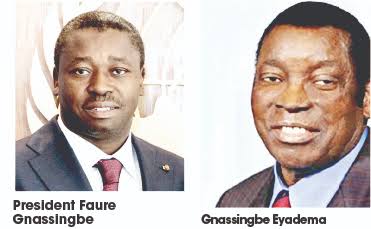
THE EYADEMAS OF TOGO
Togo (West Africa) was ruled by Gnassingbé Eyadéma for 38 years (1967-2005). Gnassingbé participated in two successful coups, in January 1963 and January 1967, and became president on 14 April 1967.
As president, he created a political party, the Rally of the Togolese People (RPT), and headed an anti-communist single-party regime until the early 1990s, when reforms leading to multiparty elections began. Although his rule was seriously challenged by opposition forces, he ultimately consolidated power again and won multi-party presidential elections in 1993, 1998 and 2003. At the time of his death in 2005, Gnassingbé was the longest-serving ruler in Africa.
After Gnassingbé's passing, his son, Faure was pronounced as the new president of Togo by chief of army staff Zakari Nandja. This move was declared unconstitutional by the African Union, and Faure was forced to step down with immediate effect. Upon the conduct of a fresh presidential election on 24 April 2005, Faure Gnassingbé was elected president with 60% of the vote. Faure is still Togo's president till date.
As president, he created a political party, the Rally of the Togolese People (RPT), and headed an anti-communist single-party regime until the early 1990s, when reforms leading to multiparty elections began. Although his rule was seriously challenged by opposition forces, he ultimately consolidated power again and won multi-party presidential elections in 1993, 1998 and 2003. At the time of his death in 2005, Gnassingbé was the longest-serving ruler in Africa.
After Gnassingbé's passing, his son, Faure was pronounced as the new president of Togo by chief of army staff Zakari Nandja. This move was declared unconstitutional by the African Union, and Faure was forced to step down with immediate effect. Upon the conduct of a fresh presidential election on 24 April 2005, Faure Gnassingbé was elected president with 60% of the vote. Faure is still Togo's president till date.
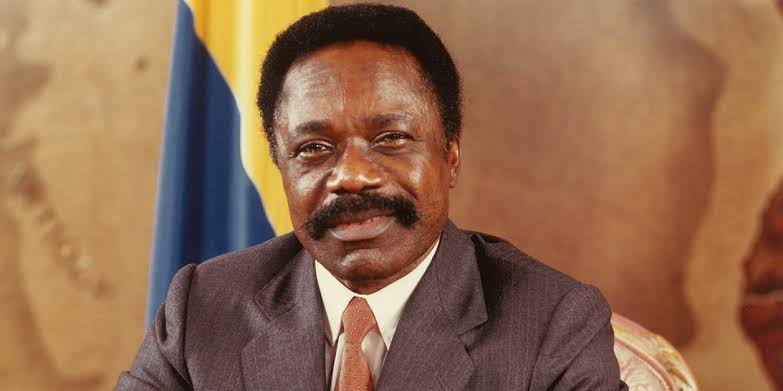
Omar Bongo
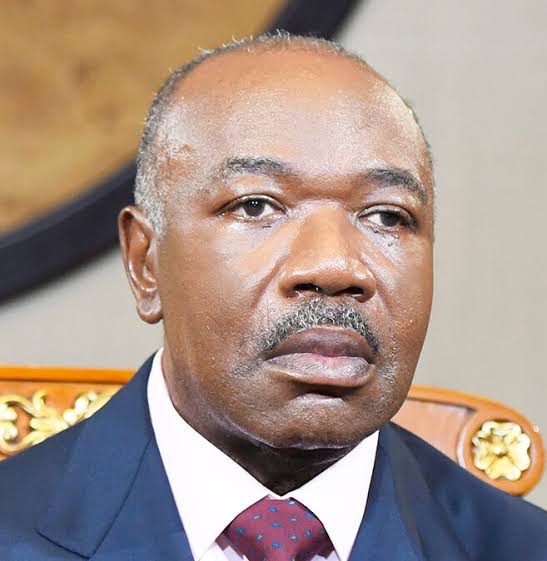
Ali Bongo
THE BONGOS OF GABON
Gabon (Central Africa) was ruled by Omar Bongo for 42 years (1967-2009). He was the country's second president after succeeding Léon M'ba.
Omar headed the single-party regime of the Gabonese Democratic Party (PDG) until 1990, when, faced with public pressure, he was forced to introduce multi-party politics into Gabon. His political survival despite intense opposition to his rule in the early 1990s seemed to stem once
again from consolidating power by bringing most of the major opposition leaders at the time to his side.
After Cuban President Fidel Castro stepped down in February 2008, Omar became the world's longest-ruling non-royal leader. He was one of the longest serving non-royal rulers since 1900.
After Bongo's death in June 2009, his son Ali who had long been assigned key ministerial responsibilities by his father was elected to succeed him in August 2009. Ali has ruled Gabon since 2009.
Omar headed the single-party regime of the Gabonese Democratic Party (PDG) until 1990, when, faced with public pressure, he was forced to introduce multi-party politics into Gabon. His political survival despite intense opposition to his rule in the early 1990s seemed to stem once
again from consolidating power by bringing most of the major opposition leaders at the time to his side.
After Cuban President Fidel Castro stepped down in February 2008, Omar became the world's longest-ruling non-royal leader. He was one of the longest serving non-royal rulers since 1900.
After Bongo's death in June 2009, his son Ali who had long been assigned key ministerial responsibilities by his father was elected to succeed him in August 2009. Ali has ruled Gabon since 2009.
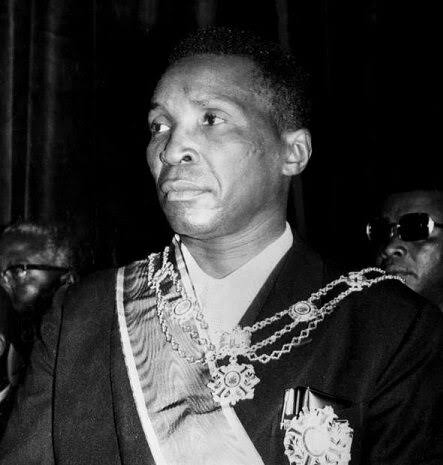
Francisco Nguema
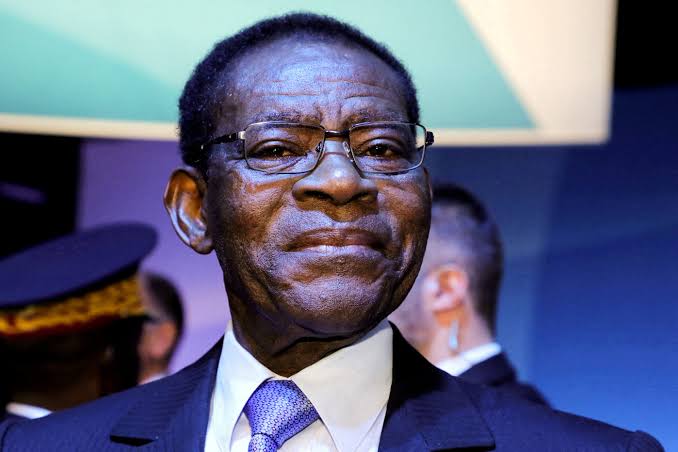
Teodoro Nguema
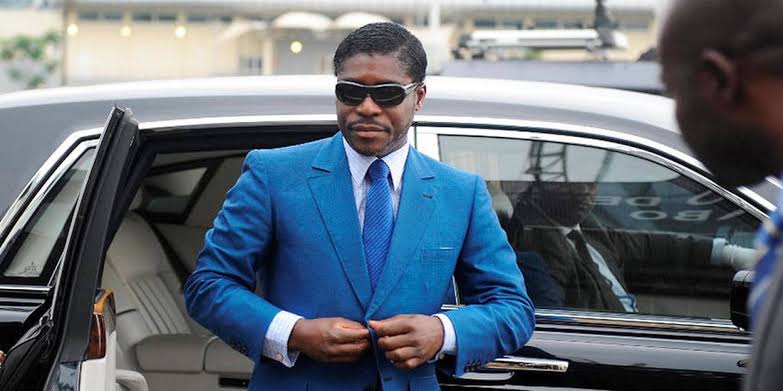
Teodorin Nguema
THE NGUEMA BLOODLINE OF EQUATORIAL GUINE
Equatorial Guinea (Central Africa) was ruled by Francisco Nguema for 11 years (1968-1979). Francisco served as the first President of Equatorial Guinea from the country's independence in 1968 until his overthrow in 1979.
Early in Francisco's rule, he consolidated power by establishing an extreme cult of personality, a one-party state ruled by his United National Workers' Party and declaring himself president for life in 1972, which was then ratified by a referendum the following year.
In 1979, he was overthrown in a coup d'état by his nephew Teodoro Obiang Nguema Mbasogo and was subsequently tried and executed. Teodoro has ruled Equatorial Guinea since 1979, thus making him the longest-serving president of any country ever and the second-longest consecutively-serving current non-royal national leader in the world (after Paul Biya in Cameroon).
In an interesting twist, Teodoro appointed his own son, Teodorin to be first Vice President of the country in 2016. Teodoro reportedly favors his son Teodorin to succeed him.
Early in Francisco's rule, he consolidated power by establishing an extreme cult of personality, a one-party state ruled by his United National Workers' Party and declaring himself president for life in 1972, which was then ratified by a referendum the following year.
In 1979, he was overthrown in a coup d'état by his nephew Teodoro Obiang Nguema Mbasogo and was subsequently tried and executed. Teodoro has ruled Equatorial Guinea since 1979, thus making him the longest-serving president of any country ever and the second-longest consecutively-serving current non-royal national leader in the world (after Paul Biya in Cameroon).
In an interesting twist, Teodoro appointed his own son, Teodorin to be first Vice President of the country in 2016. Teodoro reportedly favors his son Teodorin to succeed him.
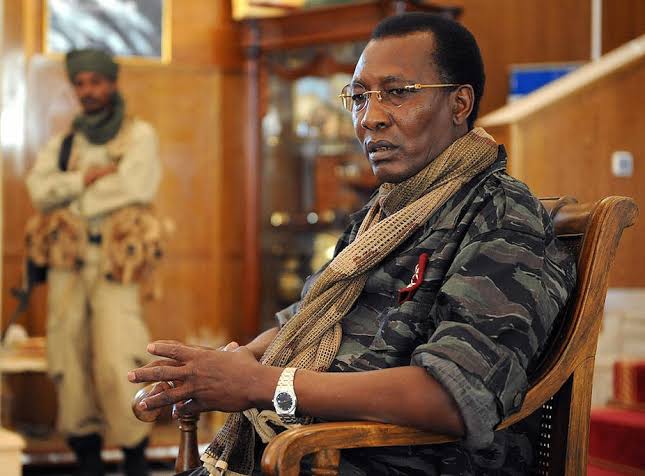
Idriss Deby
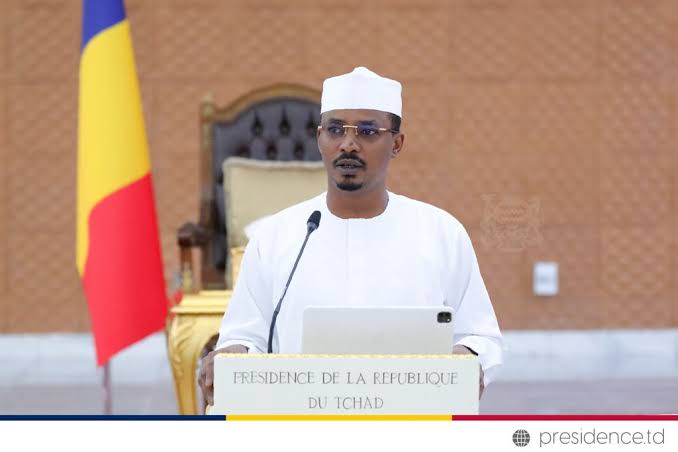
Mahamat Deby
THE DEBYS OF CHAD
Chad (West Africa) was ruled by Idriss Déby Itno from 1990-2021. Idriss took power by leading a coup d'état against Habré in December 1990. Despite introducing a multi-party system in 1992 after several decades of one-party rule under his predecessors, throughout his presidency, his Patriotic Salvation Movement was the dominant party.
Idriss won the presidential elections in 1996 and 2001, and after term limits were eliminated he won again in 2006, 2011, 2016, and 2021.
In 2016, the Front for Change and Concord in Chad (FACT) was established with the goal of overthrowing Idriss's government. In April 2021, he died from injuries sustained while commanding troops on the frontline fighting militants.
After the death of Idriss, the military announced that the elected government and National Assembly had been dissolved and that a Transitional Military Council led by Mahamat, Idriss's son, would lead the nation for 18 months. As a result, a new charter replaced the Constitution of Chad, making Mahamat the interim President and head of the armed forces. Mahamat is still leader of the Chadian government as of today despite significant pro-democracy demonstrations from opposition parties.
Idriss won the presidential elections in 1996 and 2001, and after term limits were eliminated he won again in 2006, 2011, 2016, and 2021.
In 2016, the Front for Change and Concord in Chad (FACT) was established with the goal of overthrowing Idriss's government. In April 2021, he died from injuries sustained while commanding troops on the frontline fighting militants.
After the death of Idriss, the military announced that the elected government and National Assembly had been dissolved and that a Transitional Military Council led by Mahamat, Idriss's son, would lead the nation for 18 months. As a result, a new charter replaced the Constitution of Chad, making Mahamat the interim President and head of the armed forces. Mahamat is still leader of the Chadian government as of today despite significant pro-democracy demonstrations from opposition parties.
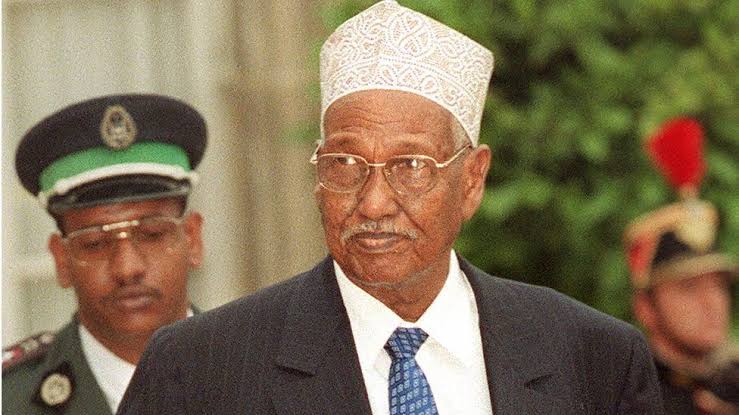
Hassan Aptidon
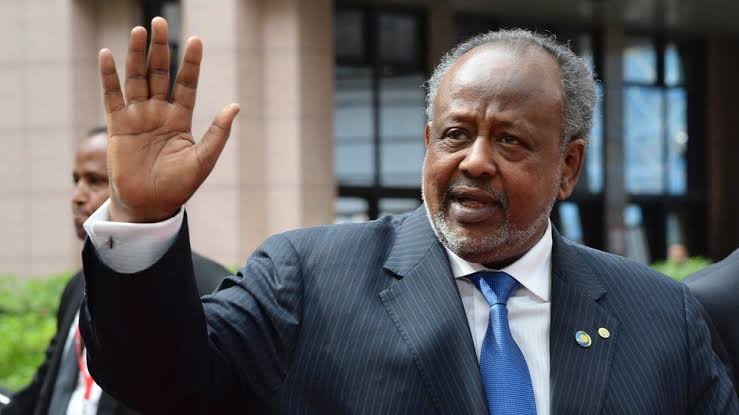
Ismaïl Guelleh
THE APTIDON & GUELLEH REIGN IN DJIBOUTI
Djibouti (East Africa) was ruled by Hassan Aptidon for 22 years (1977-1999). Hassan rose to power after first becoming president of African People's League for Independence (LPAI) in 1975 in events leading to Djibouti's independence from France. He became President of the Governing Council on 18 May 1977 and was elected President of the future Republic of Djibouti on 28 May by the Chamber of Deputies.
In 1981, Hassan Gouled turned the country into a one party state by declaring that his party, the People's Rally for Progress (Rassemblement populaire pour le progrès, RPP), was the sole legal one. This ensured that he was elected without opposition for a six-year term as President on 12 June 1981.
On 4 February 1999, Gouled Aptidon announced that he would retire at the time of the next election, and at an extraordinary congress of the RPP, the party chose Ismaïl Guelleh, Hassan's nephew as its presidential candidate.
Ismaïl Omar Guelleh won the presidential election held in April 1999 and succeeded his uncle on 8 May 1999. He remains Djibouti's head of state till date.
In 1981, Hassan Gouled turned the country into a one party state by declaring that his party, the People's Rally for Progress (Rassemblement populaire pour le progrès, RPP), was the sole legal one. This ensured that he was elected without opposition for a six-year term as President on 12 June 1981.
On 4 February 1999, Gouled Aptidon announced that he would retire at the time of the next election, and at an extraordinary congress of the RPP, the party chose Ismaïl Guelleh, Hassan's nephew as its presidential candidate.
Ismaïl Omar Guelleh won the presidential election held in April 1999 and succeeded his uncle on 8 May 1999. He remains Djibouti's head of state till date.
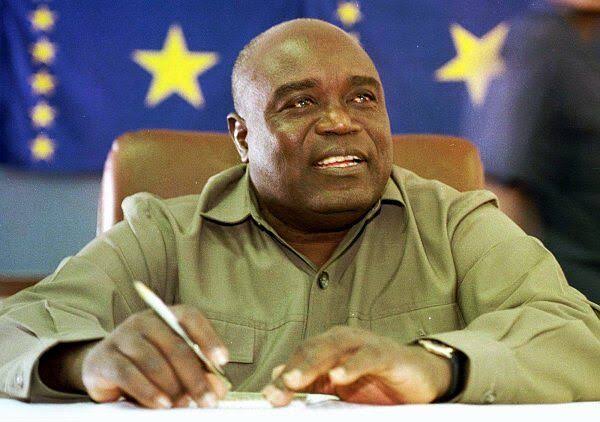
Laurent Kabila
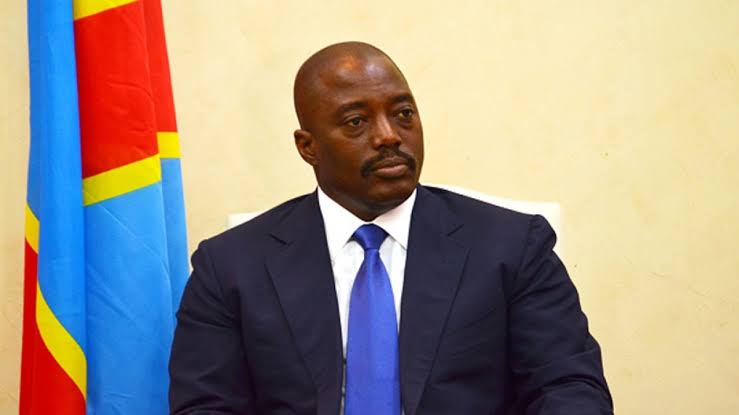
Joseph Kabila
THE KABILAS OF CONGO DR
Laurent-Désiré Kabila became the third president of Congo DR (East Africa) in 1997 bringing about the end of the military dictatorship of former president Mobutu Sese Seko Kuku Ngbendu Wa Za Banga.
Laurent was responsible for changing the country's name from Zaire back to the Democratic Republic of the Congo during his reign.
During the Second Congo War in which his Rwandan and Ugandan allies began sponsoring rebel groups to overthrow him, Laurent was assassinated by one of his bodyguards, and was succeeded ten days later by his 29 year old son, Joseph.
Joseph took office ten (10) days after the assassination of his father, Laurent, and was allowed to remain in power after the Pretoria Accord ended the civil war in 2003. He was elected as president in 2006 and re-elected in 2011 for a second term.
Since stepping down after the 2018 election, Joseph Kabila, as a former president, serves as a senator for life. It is reported that Kabila may stand again for election as president in 2023 as is his constitutional right.
Laurent was responsible for changing the country's name from Zaire back to the Democratic Republic of the Congo during his reign.
During the Second Congo War in which his Rwandan and Ugandan allies began sponsoring rebel groups to overthrow him, Laurent was assassinated by one of his bodyguards, and was succeeded ten days later by his 29 year old son, Joseph.
Joseph took office ten (10) days after the assassination of his father, Laurent, and was allowed to remain in power after the Pretoria Accord ended the civil war in 2003. He was elected as president in 2006 and re-elected in 2011 for a second term.
Since stepping down after the 2018 election, Joseph Kabila, as a former president, serves as a senator for life. It is reported that Kabila may stand again for election as president in 2023 as is his constitutional right.
